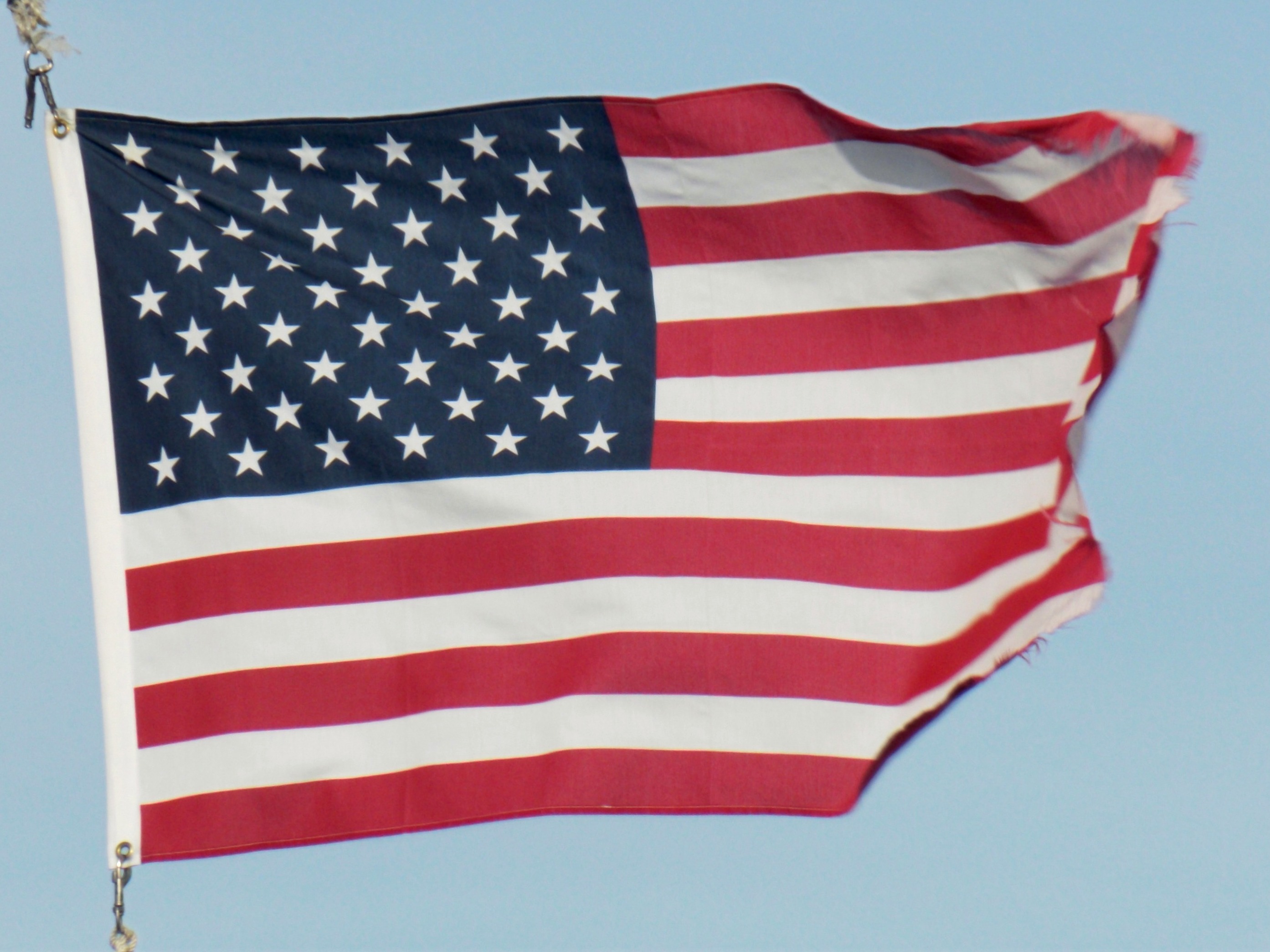A version of this article also appears on Free The People: freethepeople.org/rise-of-the-arbiters/.
The great tragedy afoot in America and the reason I’m currently walking the breadth of this nation is our sudden surge toward arbitrary governance.
“Arbitrary governance” doesn’t rank high in any polling on America’s leading national problems. It’s one of those looming specters always in the background, pushed to the vanishing point by the inattention of our schools and media. “Arbitrary Governance,” however, is such a fundamental concept that it serves as the antithesis of “The Rule of Law,” one of the most foundational concepts of our Western tradition. Why would The Rule of Law ever need to be enshrined as a foundation of society if there were not an alternative to it, an antagonistic condition, an option?
The Rule of Law is what keeps our doors from being kicked in overnight by police harboring vague suspicions. It’s what guarantees that we can say what we want and what we mean. The Rule of Law guarantees that we all have the opportunity to cast ballots. It guarantees that all are treated as equals before the law and it holds our leaders to the same standards imposed on the lowest of us. Fundamental stuff, yet useless to an arbitrary regime.
Arbitrary Governance means that none of the rules you must follow are codified. It means that the autocrat, the sovereign, or simply the bureaucracy or the state make up policy as they go along, and it means that it’s up to you, the citizen, to fall in line and stay abreast of changes.
So instrumental and recurring has this condition and the fight against it been that all of history, certainly of Western history, may be viewed through the lens of the struggle between the sovereign’s prerogative of arbitrary governance and an establishment of common law, often characterized simply as the struggle for freedom itself.
The Greeks, having found some stability if not peace by the fifth century B.C., got this ball rolling for the Europeans to come, establishing an assembly chiefly at Athens in which senators would serve in their turns, following precedents, demonstrating an alternative to autocracy, and safeguarding a continent against the absolutist theocratic regimes of the east. The Romans, albeit falteringly, advanced the cause of liberty through the slow acceptance of plebiscites, which restrained the arbitrary will of the sovereign, this taking a leap forward during the reign of Constantine in the fourth century (only to be largely lost during the time of his heirs).
Similar egalitarian stirrings were afoot among the Saxons, Mercians, and Danes during the early Medieval period, though hardly recognizable as adhering to the same sentiments motivating late eighteenth century American revolutionaries. The early legal codes of these peoples have been mostly lost in physical form to present generations; even to the people governed by these codes, they existed more as tradition than codex, known to some of them as the folcright. But importantly, by the time of Alfred the Great just prior to 900 A.D., rigorous adherence to time-honored precedents was seen as the bedrock upon which the civilizations of the British Isles rested. Indeed, Alfred’s lasting contribution to the Western tradition and ultimately the advancement of liberty was to codify the disparate legal traditions of those within his dominion and to make his autocratic prerogative subservient also to this law. This was distilled further by Edward the First and Saint Edward the Confessor into the English Common Law, precursor to Magna Carta.
This is to say that the stirrings some of us feel as we watch the rise of discretionary, untouchable, and a more absolutist regime stretches back to antiquity rather than to last night’s news commentary by our favored pundits.
The American Founding Fathers, subjects of the Crown prior to revolution, were well aware of this pertinent history and began to have misgivings as they watched their long-established rights as English citizens eroded and often replaced by the arbitrary diktats of appointed governors, unaccountable magistrates, and courts of admiralty. Yes, a tax on tea or a Stamp Act may have been flashpoints, but the roots of revolution ran far deeper, back to the Anglo-Saxon folcright, one could posit. Law now would be imposed on people who had nothing to do with its formulation or enactment, in contradiction to longstanding common law tradition, at least back to Magna Carta.
The sentiments which instigated revolution and motivated its sometimes hopeless campaigns appeared again in the Constitutional Convention at Philadelphia. Participatory and democratic governance subservient to a common law had preserved the English peoples through a millennium. Arbitrary governance was now anathema to the signers, who wagered blood and treasure to start a new iteration of the age-old struggle against arbitrary will and power.
In contrast, the French saw things quite differently around the same time: their struggle began as one of liberation from the autocrat, not from the idea of arbitrary governance. In their model—their fluid and ever-changing model—the arbitrary will of men of good heart and intentions, such as Monsieur Robespierre, would obviate the depredations of tyranny. For this, the Parisians and the rest of France gladly gave a “do what needs to be done” mandate to the Jacobins to act, ostensibly, on the people’s behalf. They instituted absolutist government without first severely restraining it, and in so doing sowed the seeds of their own destruction.
As long as there has been common law, there has been at least the most necessary level of freedom and people have enjoyed the predictability of governance that lays the groundwork for societal flourishing.
Today, we suffer from a revival of innovation and experimentation in governance and a lack of resistance to it. We’re told that this is a new day—a time in which the knowledge imparted by big data and from the realm of sociology may be harnessed to compute away the problems of man, if only we’ll stand aside for the enlightened technocrats. They fail to realize how closely their promises of automated utopia parallel those of Henri de Saint-Simon in the early 1800s, or the Jacobins just a little earlier, or the Soviet modelers. We’ve been here before.
What is operative in such recurring scenarios is not whether the newest scheme of governance brings about its utopian goals, but rather the shifting of the balance of power out of the hands of the people and into the hands of their wise and beneficent leaders. The constancy of a common law is exchanged for a grand new experiment in arbitrary governance. If the original plan doesn’t happen to bring about exactly the forecast results, corrective—and coercive—edicts may be immediately issued to get it right.
In today’s America, we’ve slowly come to accept the intrusions of government in all manner of places meant by the nation’s framers to remain within the private domain. The government takes responsibility for and issues mandates concerning the education of our children. Incompetent bureaucrats who would likely have trouble effectively applying bandages dabble in medical management. They own the world of finance and behind the scenes they manipulate our mortgages through the tertiary marketplace they’ve designed. The ubiquity of bureaucracy makes legal variability seem not unnatural to American citizens today. Of course the government runs everything and makes alterations at will—why wouldn’t they?
The increasingly complex legal code and compliance burden are the gifts of arbitrary “law.”
We’ve watched as “bailouts” have become the norm since 2001—redistributions from everyday citizens to favored mismanaged corporations, as well as to some businesses destroyed directly by government over the last year.
At our lowest levels of government, we’ve come to accept vehicles of arbitrary compliance such as zoning laws that intrude on private property rights in ways our founders would have found unconscionable and that remain always malleable enough to fit the will of any particularly domineering zoning board member.
We became more and more isolated from history and became more and more comfortable thinking of government as shepherd rather than steward. Then COVID-19 arrived.
For those of us who tend to think things through in terms of the big picture and the long term, this set off alarm bells like nothing else in our lifetimes. No, not because we sensed an unprecedented pestilence or existential threat, but because this was instantly the vehicle of choice to move forward the train of arbitrary rule, having decoupled almost simultaneously from the engine of global warming. We were told to do things that no level of American government has been empowered to broadly impose. We were told to do these things on an emergency basis and because we faced an existential threat, though anyone looking at the incoming data realized how severely exaggerated the threat was within a few weeks. Even Imperial College career doomsayer Neil Ferguson backed off his much-cited early projections of death and settled for a far lower figure; a figure that likely also has never been met, that is, unless you accept the also novel technique of conflating “death with” and “death from.” The simple truth was not allowed to be spoken: that this sickness was a killer of people about to die anyway in the vast majority of cases. Most contracting it would never realize they’d had it.
Breathless newscasters spoke of the emerging threat in terms commensurate with the return of the bubonic plague. The same media darlings who had always embraced and preached an environmental message of human overpopulation now seemed oddly concerned with the very sustainability of our species. No projection was too dark or dystopian to make the nightly news.
Almost no one seemed to recognize that if this were an emergency, then there were few times in our nation’s history without an emergency and there probably never would be a time of non-emergency again. Portentous precedents were set as we largely stood by, masked up, and fell in line, exactly six feet apart.
But governments and the sycophants of authority have long played this game in a thousand guises. Here is a new emergency—novel, unlike anything seen before—one that only a powerful government loosed from the inhibitions of its Constitution may deliver us from. Let us all unite! Banish the heterodox voices of discord and suspicion. And build back better. Onward to utopia.
In the COVID context, suddenly protective facewear was mandated. With no precedent, some businesses were deemed essential while others were not, in some locales subject to an all too often opaque appeals process. We were told precise numbers of people that might gather in one place at one time. And these mandates were altered from time to time on the whims of governors and the federal health bureaucracy. We were rendered in an instant subjects and supplicants. History suggests that those in power like it this way and that this condition is not easily reversed.
After the slow multi-generational acceptance of authority where none had been authorized, we found ourselves in the land of naked arbitrary rule. As we failed to defy this on any large scale, the resolve of our newly minted overlords hardened even as their protocols were broadly habituated. With gusto and self-righteousness, we leapt headlong into our Orwellian future, ostracizing our very few neighbors who were slow to get on board or even reporting them to the health police.
The pre-revolutionary and revolutionary-era writings of our American Founding Fathers reveal deep concern for ideas as opposed to simply having their own new currency, army, and flag. Perhaps chief among these ideas was aversion to arbitrary governance. The Constitution was meant to be a near ironclad bulwark against this most persistent of human foibles. Viewed in this light, one comes to see quickly that our forefathers went to war not so much to rectify their list of British annoyances as to start again in this new world the noble aspiration of liberty from arbitrary dictates. Do we today hold their great pains worthless? How quickly would they have gone to war if the British Parliament had ordered them to mask up and limit their congregation?
We, as Americans, stand against those who see the world as a commons—as their commons and their people to teach and fix and guide and corral. Today, our “progressives” lure us once again with promises of future equality and equity, not to mention an unpolluted world and benevolent new economy. Death by disease will become a thing of history books, so don’t be found on the wrong side of history! But those who do read history already realize the regressive progression they offer and have offered for time immemorial. We call them “progressives,” but what could be a grander misnomer for those again standing athwart The Long March of Liberty yelling, “Stop!”









It’s a good point! If the force of the state is to be used to (try to) fix something, the system ought to operate carefully and slowly. There ought to be lots of delays and road blocks to help ensure that a ‘wise’ decision is made. After all, don’t we apply this principle to our own decisions: don’t make impulsive decisions. Think about it; sleep on it.
If a mob wants government to give everyone $1,000, this desire shouldn’t be enacted the same afternoon. It should be blocked by procedures and divisions of power, so that thought and reconsideration take place.
And yes, the US Constitution, as originally conceived had lots of ‘checks and balances’ and the founders were very skeptical of hasty, impulsive ‘popular’ governance. Jim Payne